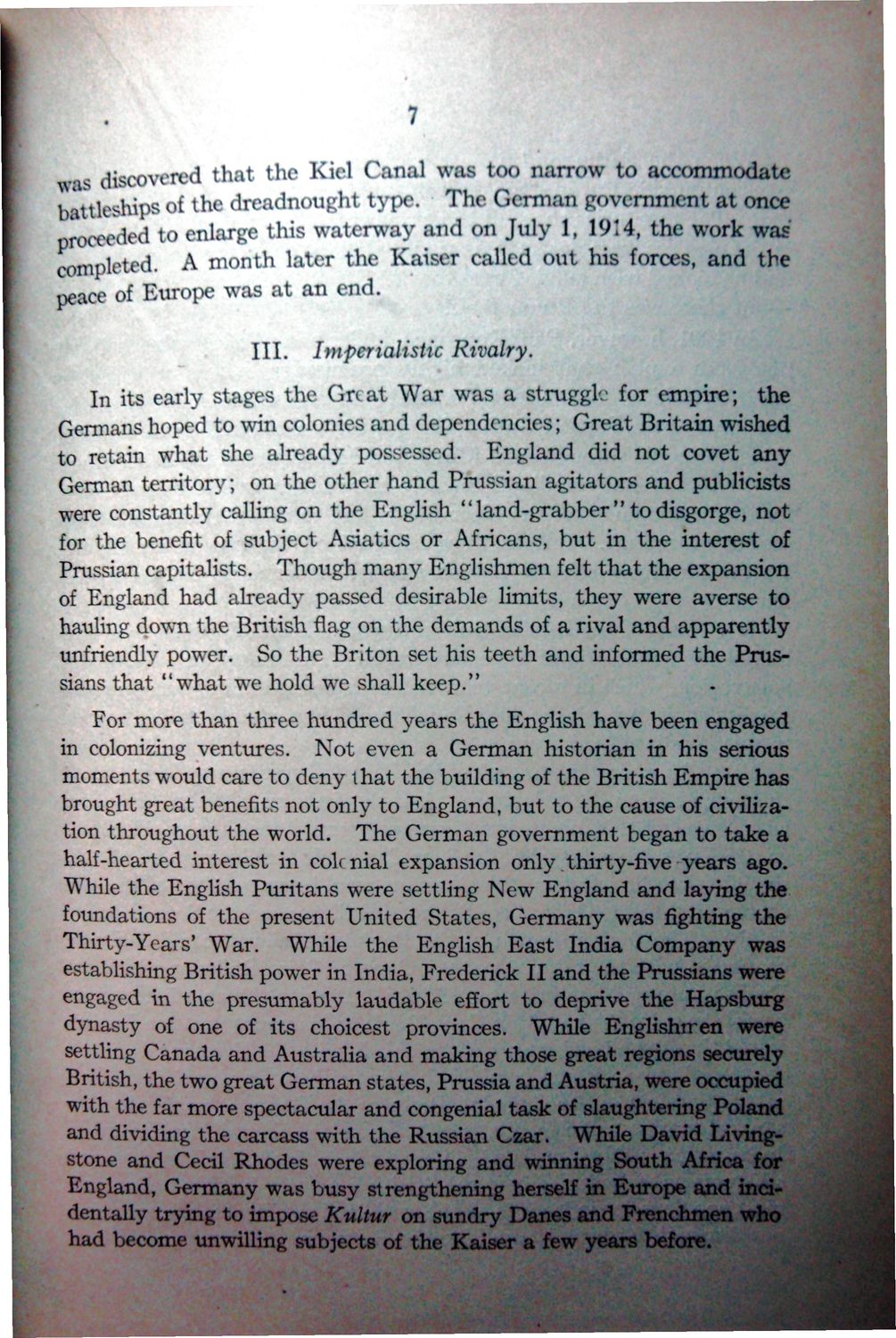| |
| |
Caption: War Publications - WWI Compilation 1923 - Article 15
This is a reduced-resolution page image for fast online browsing.

EXTRACTED TEXT FROM PAGE:
7 . discovered that the Kiel Canal was too narrow to accommodate battleships of the dreadnought type. The German government at once proceeded to enlarge this waterway and on July 1, 19! 4, the work was' completed. A month later the Kaiser called out his forces, and the peace of Europe was at an end. III. Imperialistic Rivalry. cat War was a struggle for empire; the s and dependencies; Great Britain wished possessed. England did not covet any German territory; on the other hand Prussian agitate were constantly calling on the English " land-grabber interest Prussian capitalists. Though many Englishmen of England had already passed desirable limits flag on the demands of a rival and apparen unfriendly power. So tl informed the Prussians that "what we hold we shall keep/' For more than three hundred years the English have been engaged in colonizing ventures. Not even a German historian in his serious moments would care to deny that the building of the British Empire has brought great benefits not only to England, but to the cause of civilization throughout the world. The German government began to take a half-hearted interest in cole nial expansion only.thirty-five years ago. Puritans were settling New England and Germany was War. While the any was Prussians engaged in the presumably laudable effort to deprive the Hapsburg dynasty of one of its choicest provinces. While Englishmen were settling Canada and Australia and making those great regions securely British, the two great German states, Prussia and Austria, were occupied with the far more spectacular and congenial task of slaughtering Poland and dividing the carcass with the Russian Czar. While David Livingstone and Cecil Rhodes were exploring and winning South Africa for England, Germany was busy strengthening herself in Europe and incidentally trying to impose Kultur on sundry Danes and Frenchmen who had become unwilling subjects of the Kaiser a few years before.
| |